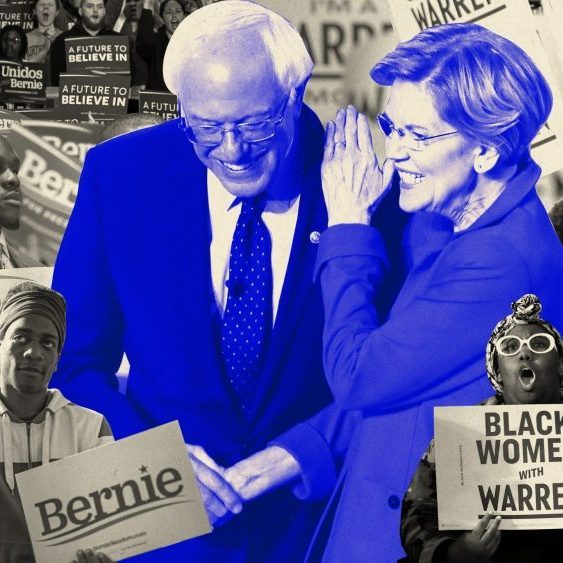Democracy can only begin to work when those who are relegated to the fringes of society can begin to sample what those in society take for granted as their inalienable right.
Senate Majority Leader Mitch McConnell has voiced opposition to making Election Day a federal holiday. However, allowing American voters a more accessible and a stress-free trip to their voting precincts should be a no-brainer. And, H.R.1 — For the People Act of 2019 would do just that.
McConnell depicted the Democratic-controlled House proposal as “a political power grab,” and mocked the legislation as the “Democrat Politician Protection Act.”
Not true!
H.R. 1 includes a group of voting rights provisions that would “expand Americans’ access to the ballot box, reduce the influence of big money in politics, and strengthen ethics rules for public servants, and for other purposes.” The bill would improve access for voters with disabilities and voter turnout. It would reform automatic voter registration and felon re-enfranchisement. In other words, H.R. 1 would modernize a century-old bankrupt voting system to mirror America today; thus allowing for participatory democracy.
Because of the GOP’s continued aversion to diversity — people of color, LGBTs, immigrants, and Muslims, to name a few — the tribe has become an aging White nostalgic throwback of Jim Crow days.
Since the 1964 Civil Rights Voting Act gave African Americans the ballot, the GOP has had ongoing tactics to suppress minority voting of people of color. Such old Jim Crow tactics as literacy tests, poll taxes and grandfather clauses have given way to a new crop of tactics: random voter roll purging, changing polling locations and/or polling hours, eliminating early voting days, reducing the number of polling places, packing majority-minority districts and dividing minority districts, along with notorious voter ID laws that disproportionately disenfranchise minority voters. They are all part and parcel of the Republican playbook.
The Republican game plan to disenfranchise Democratic voters by any means necessary has both unapologetically and unabashedly shown the American public the art of what a “power grab” really looks like. And, McConnell’s party has continued their no-holds-barred tactics in this century as in the last.
In 2000, the outcome of the presidential race between Democratic Vice President Al Gore and Republican Texas Governor George W. Bush was decided in a recount of Florida ballots due to hanging chads. In predominantly Black voting precincts, which are overwhelmingly Democratic, it was reported that piles of ballots were left uncounted. The U.S. Civil Rights Commission reported that 53 percent of ballots invalidated by Florida officials were cast by Black voters. The Florida debacle was settled in Bush’s favor, winning him the presidency. His brother Jeb was governor at the time.
In 2013, by a 5-to-4 Republican majority, the U.S. Supreme Court case Shelby County v. Holder eviscerated Section 4(b) of the 1965 Voting Rights Act (VRA). The section historically protected African Americans and other disenfranchised people of color and also identified problematic voting precincts with shameful histories of racial discrimination. Not surprisingly, these precincts are predominantly GOP strongholds. The Court ruled that Section 4(b) were outdated. The ruling attests to the fictive post-racial premise that racial minorities, especially in the South, no longer confront discriminatory barriers voting.
At the time, the VRA applied to nine states in South — Alabama, Alaska, Arizona, Georgia, Louisiana, Mississippi, South Carolina, Texas, and Virginia.
After North Carolina’s Black vote increased by 51.1 percent in 2000, and Blacks had a higher voter turnout with Obama on the ballot in both 2008 and 2012 presidential elections, the federal court said that state’s GOP had begun to target Blacks “with almost surgical precision” to deny them voting rights.
In 2018, the epic gubernatorial battle between Democratic candidate Stacey Abrams and Republican candidate Brian Kemp was a bold, brash, and brazen example of how the Republican “power grab” works in the state of Georgia. While running for governor, Kemp also stayed on as Georgia’s secretary of state. As secretary of state, he oversaw the state’s elections and was responsible for the “exact match” policy which states that a voter’s application must “exactly match” their social security or driver’s license information in order to be approved. According to the Associated Press, 53,000 applications were put on hold — 70 percent of which were Black voters.
The GOP tactics to dissuade people of color from going to the polls during the midterm elections also impacted and posed challenges for many transgender voters who transitioned. Many did not have government-issued photo IDs reflecting their gender. According to the Williams Institute data, of the 137,000 transgender people who transitioned and were eligible to vote, approximately 57 percent (78,000) may not have had the appropriate ID.
H.R. 1-For the People Act of 2019 would allow those of us who’d too easily be denied the right to vote.
I grew up knowing one of the most influential voices in American politics, Congresswoman Shirley Chisholm. Chisholm represented my Brooklyn congressional district for seven terms, from 1969 to 1983. She was known throughout the neighborhood and the halls of power in New York City as a force to be reckoned with who was “unbought” and ”unbossed” (also the title of her 1970 memoir).
I learned from her that democracy can only begin to work when those who are relegated to the fringes of society can begin to sample what those in society take for granted as their inalienable right. And, it starts at the ballot box.


